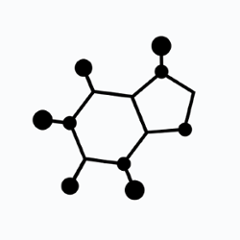jMolecules – Architectural abstractions for Java
A set of libraries to help developers work with architectural concepts in Java. Goals:
-
Express that a piece of code (package, class, method…) implements an architectural concept.
-
Make it easy for the human reader to determine what kind of architectural concepts a given piece of code is.
-
Allow tool integration (to do interesting stuff like generating persistence or static architecture analysis to check for validations of the architectural rules.)
Expressing DDD concepts
Example:
import org.jmolecules.ddd.annotation.*;
@Entity
public class BankAccount { /* ... */ }
@ValueObject
public class Currency { /* ... */ }
@Repository
public class Accounts { /* ... */ }
When we take Ubiquitous Language serious, we want names (for classes, methods, etc.) that only contain words from the domain language. That means the titles of the building blocks should not be part of the names. So in a banking domain we don’t want BankAccountEntity, CurrencyVO or even AccountRepository as types. Instead, we want BankAccount, Currency and Accounts – like in the example above.
Still, we want to express that a given class (or other architectural element) is a special building block; i.e. uses a design pattern. jMolecules provide a set of standard annotations for the building blocks known from DDD.
Using a type based model
As an alternative to the above mentioned annotations, jMolecules also provides a set of interfaces, largely based on the ideas presented in John Sullivan’s series "Advancing Enterprise DDD". They allow expressing relationships between the building blocks right within the type system, so that the compiler can help to verify model correctness and the information can also be processed by Java reflection more easily.
-
Identifier— A type to represent types that are supposed to act as identifiers. -
Identifiable<ID>— Anything that’s exposing an identifier. -
Entity<T extends AggregateRoot<T, ?>, ID> extends Identifiable<ID>— An entity, declaring to whichAggregateRootit belongs and which identifier it exposes. -
AggregateRoot<T extends AggregateRoot<T, ID>, ID extends Identifier> extends Entity<T, ID>— an aggregate root being anEntitybelonging to itself exposing a dedicatedIdentifier -
Association<T extends AggregateRoot<T, ID>, ID extends Identifier> extends Identifiable<ID>— an explicit association to a targetAggregateRoot.
This arrangement gives guidance to modeling and allows to easily verify the following rules, potentially via reflection:
-
Enforced, dedicated identifier types per aggregate to avoid identifiers for different aggregates mixed up.
-
AggregateRootmust only refer toEntityinstances that were declared to belong to it. -
AggregateRoots andEntitys must only refer to otherAggregateRootsviaAssociationinstances.
For automated verification and runtime technology integration see jMolecules Integrations.
Libraries
-
jmolecules-ddd— annotations and interfaces to express DDD building blocks (value objects, entities, aggregate roots etc.) in code. -
jmolecules-events— annotations and interfaces to express the concept of events in code.
Expressing architecture
jMolecules provides annotations to mark a package as a layer (or ring):
import org.jmolecules.architecture.layered.*;
@DomainLayer
package org.acmebank.domain;
@ApplicationLayer
package org.acmebank.application;
That way, all classes in the respective package are considered to be part of the annotated layer.
Alternatively, classes can be annotated directly:
import org.jmolecules.architecture.layered.*;
@DomainLayer
@Entity
public class BankAccount { /* ... */ }
@ApplicationLayer
@Service
public class TransferMoney { /* ... */ }
Currently, annotations for Layered and Onion Architecture exist.
Libraries
-
jmolecules-architecture— annotations to express architectural styles in code.-
jmolecules-cqrs-architecture— CQRS architecture-
@Command -
@CommandDispatcher -
@CommandHandler -
@QueryModel
-
-
jmolecules-layered-architecture— Layered architecture-
@DomainLayer -
@ApplicationLayer -
@InfrastructureLayer -
@InterfaceLayer
-
-
jmolecules-onion-architecture— Onion architecture-
Classic
-
@DomainModelRing -
@DomainServiceRing -
@ApplicationServiceRing -
@InfrastructureRing
-
-
Simplified (does not separate domain model and services)
-
@DomainRing -
@ApplicationRing -
@InfrastructureRing
-
-
-
Installation
To use jMolecules in your project just install it from the Maven central repository.
Maven
<dependency>
<groupId>org.jmolecules</groupId>
<artifactId>jmolecules-ddd</artifactId>
<version>1.2.0</version>
</dependency>
Gradle
compile("org.jmolecules:jmolecules-ddd:1.2.0")
Release instructions
-
mvn release:prepare -DscmReleaseCommitComment="$ticketId - Release version $version." -DscmDevelopmentCommitComment="$ticketId - Prepare next development iteration." -
mvn release:perform -Dgpg.keyname=$keyname
